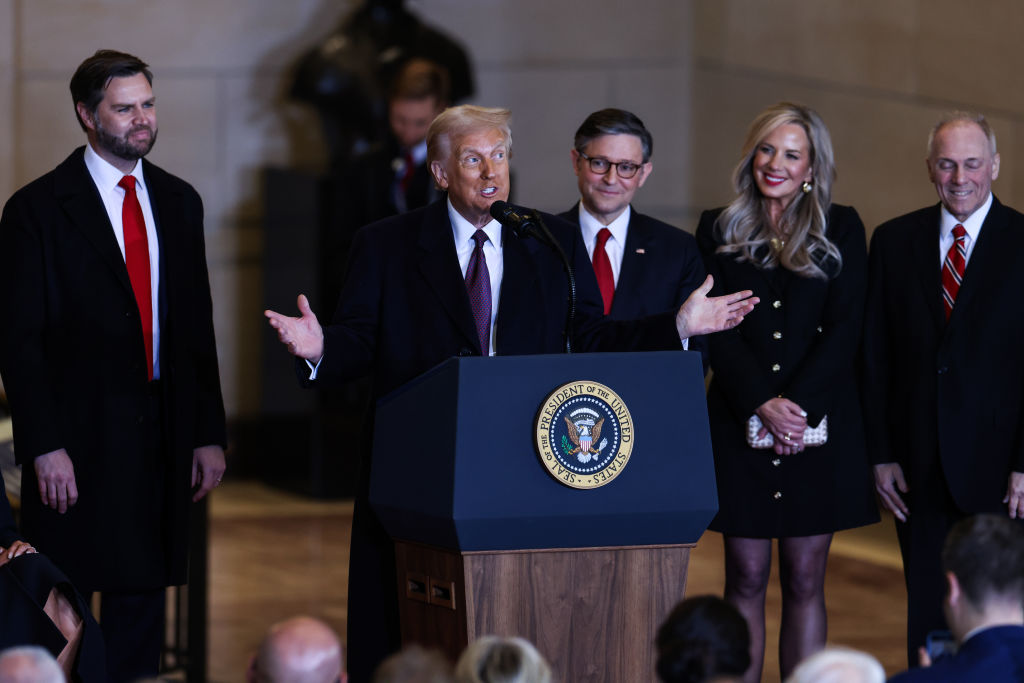Newly sworn-in U.S. President Donald Trump said on Monday he will declare illegal immigration at the U.S.-Mexico border a national emergency, send troops there and ramp up deportations of criminal offenders, outlining the crackdown in his inaugural address.
Trump said be would invoke a 1798 law known as the Alien Enemies Act to target foreign gang members in the U.S., a legal authority last used to detain noncitizens of Japanese, German, and Italian descent in internment camps during World War Two.
Shortly after the inauguration, U.S. border authorities said they had shut down outgoing President Joe Biden’s legal entry program known as CBP One that had allowed hundreds of thousands of migrants to enter the U.S. legally by scheduling an appointment on an app. Existing appointments were canceled, according to U.S. Customs and Border Protection.
Trump said he would designate criminal cartels as foreign terrorist organizations, part of a slate of moves that could shake up U.S.-Mexico relations.
Earlier, a Trump official who asked not to be named said the new president plans to issue a sweeping proclamation blocking access to all seeking asylum at the Mexico border. Trump also intends to challenge U.S. citizenship for children born to parents in the U.S. illegally, the official said, a right that stems from an amendment to the U.S. Constitution.
Trump, a Republican, recaptured the White House after promising to intensify border security and deport record numbers of migrants. While Trump criticized Democrat Biden for high levels of illegal immigration during his presidency, migrant arrests fell dramatically after Biden toughened his policies in June and as Mexico stepped up enforcement.
Republicans say large-scale deportations are necessary after millions of immigrants crossed illegally during Biden’s presidency. There were roughly 11 million immigrants in the U.S. illegally or with a temporary status at the start of 2022, according to a U.S. government estimate, a figure that some analysts now place at 13 million to 14 million.
Trump’s critics and immigrant advocates say mass deportations could disrupt businesses, split families and cost U.S. taxpayers billions of dollars.
The American Civil Liberties Union and other groups have been preparing for possible litigation, a strategy that stymied many of Trump’s hardline policies during his first term. California and other Democratic-led states that have policies limiting cooperation with federal immigration enforcement also could clash with Trump.
The official said Trump would take 10 executive orders and actions on Monday aimed at stepping up border security, calling illegal immigration an “invasion.”
The official said Trump will take steps intended to end birthright citizenship for U.S.-born children whose parents lack legal immigration status. That move will almost certainly trigger legal challenges. Trump also plans to suspend the U.S. refugee resettlement program for at least four months and will order a review of security to see if travelers from certain nations should be subject to a travel ban.
Kristi Noem, Trump’s pick for Homeland Security secretary, said at a U.S. Senate confirmation hearing on Friday that she would end Biden-era legal entry programs that have allowed hundreds of thousands of migrants to enter the U.S. on a temporary basis.
Trump said in his address that he would reinstate his first-term “remain in Mexico” program, which forced non-Mexico asylum seekers to wait in Mexico for the outcome of the U.S. cases. Biden ended the program in 2021, saying migrants were stuck waiting in squalid conditions.
Mexico’s presidency, foreign ministry, and economy ministry did not immediately respond to requests for comment on Trump’s plans. In a regular press conference on Monday, Mexican President Claudia Sheinbaum called for calm and insisted her government had to see the details of Trump’s actions before responding.
(Reuters)




















